AI and Emotional Learning: Insights from the Miami AI Club Event
The Dawn of Responsible AI
The Miami AI Club recently hosted an event that brought together experts to discuss AI and emotional learning. A key theme that emerged was the importance of responsible AI development. Microsoft, for instance, has been working on this for over five years, establishing six AI principles to guide their work. The focus is on identifying sensitive use cases where AI decisions could significantly impact people’s lives, emphasizing the need for human oversight in critical situations.
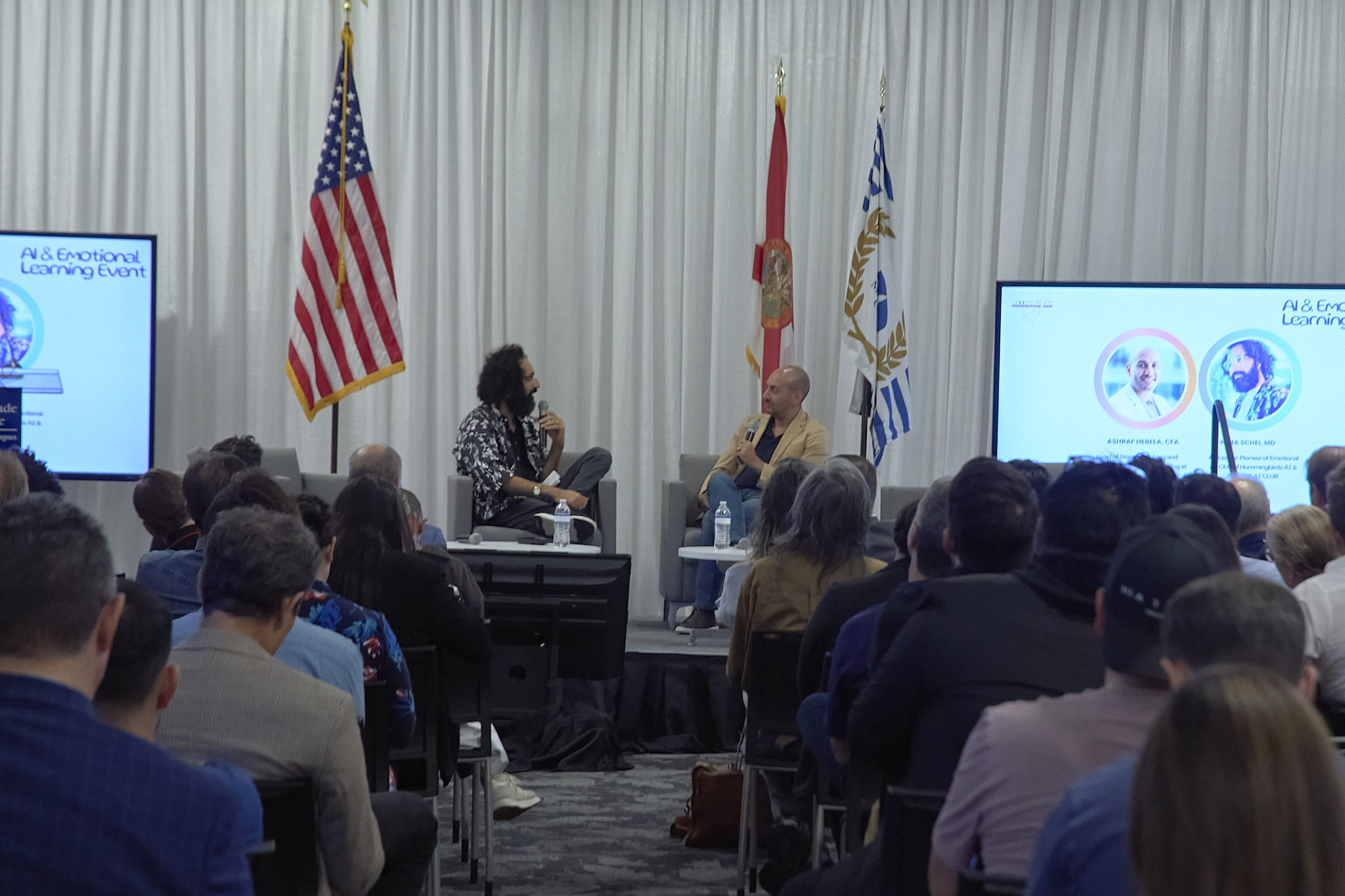
AI in Education: Personalizing the Learning Experience
In education, AI’s potential to create personalized and engaging learning experiences was highlighted. Tools like Microsoft’s “Reflect” use AI to help teachers understand the emotional state of their classroom, while other applications can generate examples tailored to students’ interests.
The Future of Emotional AI
Experts discussed AI’s developing ability to recognize human emotions from speech, movement, and facial expressions, pointing to a future where AI could interact more effectively with human emotions. An intriguing concept introduced was that of emotional synchrony – the idea that humans naturally synchronize biologically when interacting. The speakers suggested that for optimal human-AI interaction, AI may need to understand and replicate this synchrony.

Challenges in AI Adoption
The experts discussed challenges in AI adoption, particularly for small businesses. They stressed the importance of making AI accessible and beneficial to all demographics to avoid widening economic gaps. They also emphasized the need to develop “meta skills” like resilience, creativity, and adaptability alongside AI advancement.
Ethical Considerations in AI Development
Drawing parallels with unforeseen consequences of past innovations like plastic, the speakers highlighted the need to anticipate potential negative impacts of AI. They also stressed the importance of diverse representation in AI development to avoid biases and ensure ethical use.
Emotional AI in Cancer-care: Saving Lives and Improving Patient Experience
In healthcare, AI is already making significant strides. A collaboration between Florida International University and Nicklaus Children’s Hospital used AI to analyze various medical data, leading to new treatment protocols based on over the counter medications for children with cancer, with 83% disease-free survival in a trial. Another fascinating application involves using AI and augmented reality to create games that explain medical procedures to children in a calming, age-appropriate way.
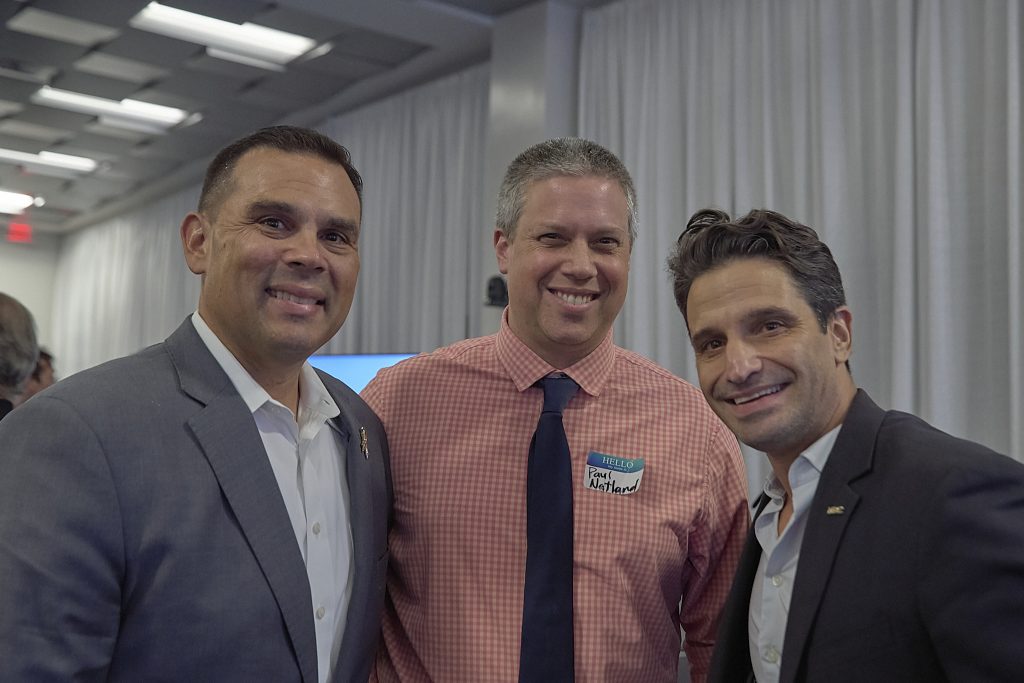
The Human Side of AI: The Live Like Bella Foundation
The event concluded with an inspiring story from Raymond Rodriguez-Torres about his daughter Bella’s battle with cancer, which led to the creation of the Live Like Bella foundation. This foundation now funds pediatric cancer research and supports families affected by childhood cancer, demonstrating how personal experiences can drive innovation and compassion in healthcare.
Conclusion
The event provided a comprehensive look at the potential of AI across various fields while emphasizing the need for responsible development and careful consideration of its impact on human emotions and society. As AI continues to advance, events like these that bring together diverse perspectives will be crucial in shaping its future.
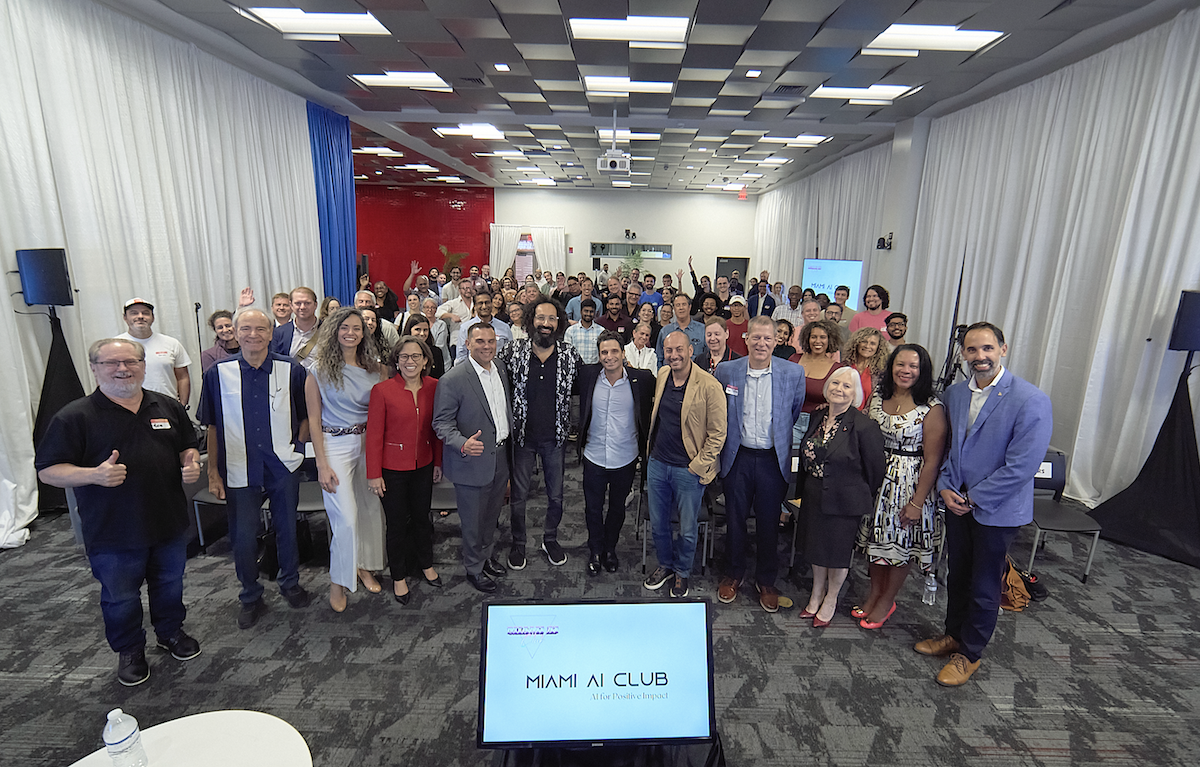
AI & Emotional Learning Symposium: A Comprehensive Recap
Dr. Nima Schei’s Keynote: The Emotional Intelligence of AI
Under the atmospheric backdrop of a rainy Miami, Dr. Nima Schei, the visionary founder of the Miami AI Club, inaugurated our exclusive gathering focused on AI and emotional learning. With his dual expertise as a medical doctor and neuroscientist, Nima shared a compelling narrative of his foray into emotional AI, challenging the long-standing notion that emotions are a hindrance to sound decision-making.
Nima recounted the development of “BELBIC” controllers, innovative systems inspired by the brain’s limbic structure, which outperform conventional logic-based mechanisms in both speed and efficiency. His decision to render this technology open-source has facilitated its application across diverse industries. Yet, this openness was put to the test upon discovering its use in missile control systems, a poignant reminder of the dual-edged nature of technological advancements and the ethical responsibilities incumbent upon creators.
Drawing insightful parallels to the advent of plastic and the rise of social media, Nima illuminated the often-overlooked long-term impacts of emerging technologies. He posed critical questions regarding AI’s role in shaping the emotional development of future generations, underscoring the necessity of foresight in innovation.
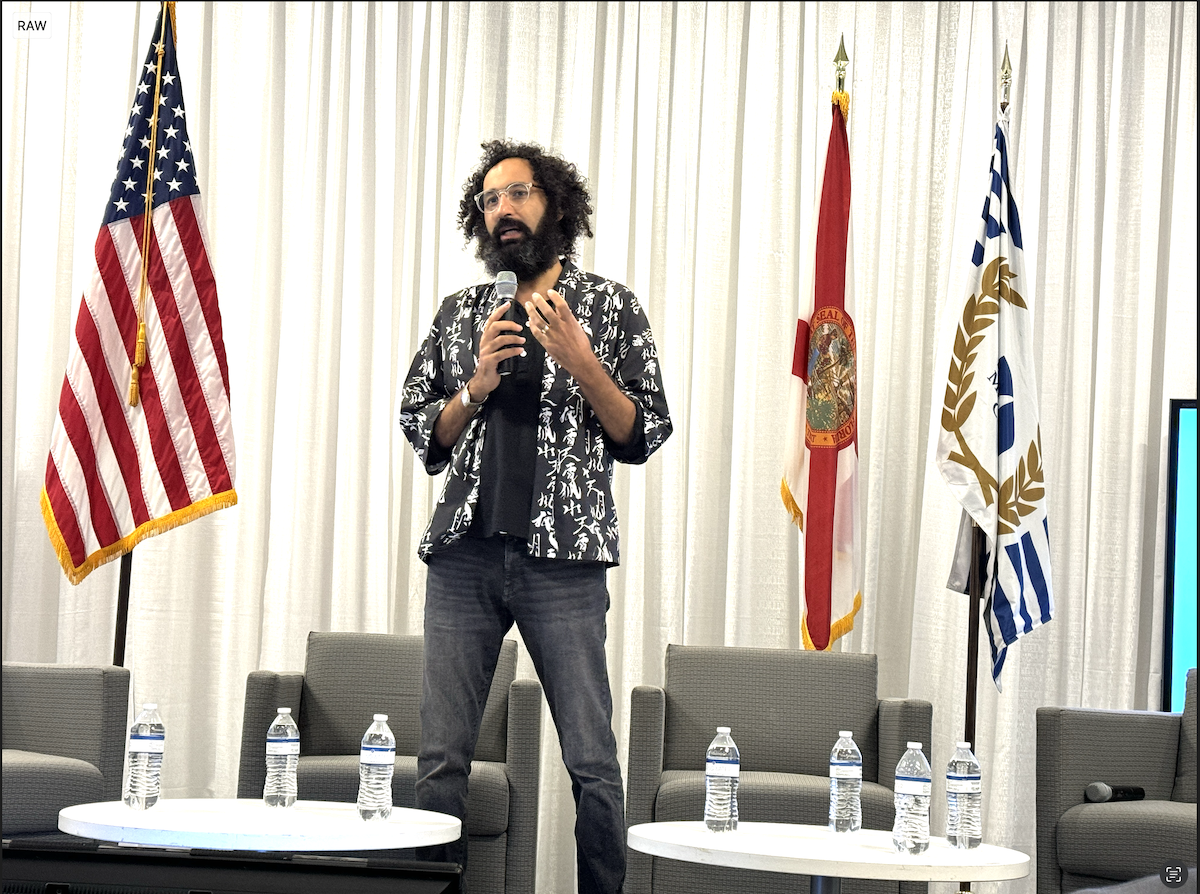
Nima delved deeper into the potential of emotionally intelligent AI, discussing how it could revolutionize fields such as healthcare, education, and personal development. He presented case studies where AI systems with emotional awareness have improved patient outcomes, enhanced learning experiences, and provided more nuanced support in mental health applications.
The keynote also addressed the ethical considerations of developing emotionally intelligent AI. Nima emphasized the importance of transparency in AI decision-making processes and the need for diverse perspectives in AI development to avoid bias and ensure that these systems benefit all segments of society.
Concluding his keynote, Nima articulated the symposium’s core objective: to delve into AI’s transformative potential on the emotional learning of tomorrow’s leaders, marrying excitement with a judicious appraisal of associated risks. He called for collaboration across disciplines to ensure that as AI becomes more emotionally intelligent, it remains aligned with human values and ethics.
Dr. Susan Neimand’s Keynote: Bridging Neuroscience, Education, and AI
Dr. Susan Neimand, an authority in education and cognitive neuroscience, graced the stage next, intertwining her personal educational journey with insights into emotional learning and AI’s educational applications.
Starting with her early intrigue in brain function—sparked by her childhood challenges with multiplication tables—Dr. Neimand traced her 45-year odyssey in brain studies, including her initial encounters with AI in 1994. Her discourse delved into the interplay between the brain’s emotional capacities and learning, underscoring emotions’ vital roles in cognition and well-being.
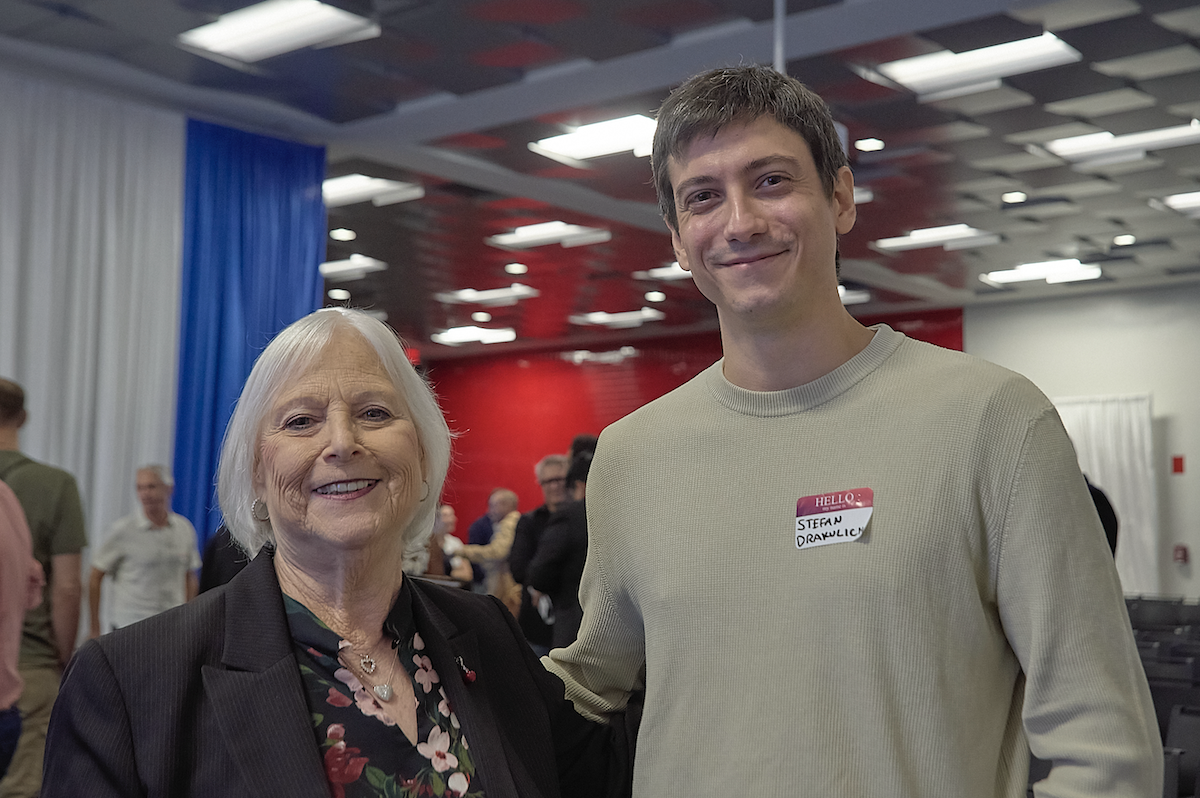
She introduced emotional learning through CASEL’s core competencies, such as self-awareness and relational skills. Dr. Neimand explored how these competencies form the foundation of emotional intelligence and how they can be cultivated in educational settings.
Dr. Neimand then turned to AI’s promising contributions to emotional learning, showcasing its ability to customize education, alleviate student stress, and bolster engagement. She cited her grandson’s tailored learning experience as a vivid example of AI’s potential to transform education. The keynote highlighted several AI-driven tools and platforms that are already making significant impacts in classrooms around the world.
However, Dr. Neimand also candidly addressed AI’s challenges in the educational sphere. She discussed the risks of misinformation, the potential for cyberbullying, and educators’ job security concerns. Dr. Neimand advocated for comprehensive AI training for educators, emphasizing that AI should be seen as a tool to enhance teaching, not replace teachers.
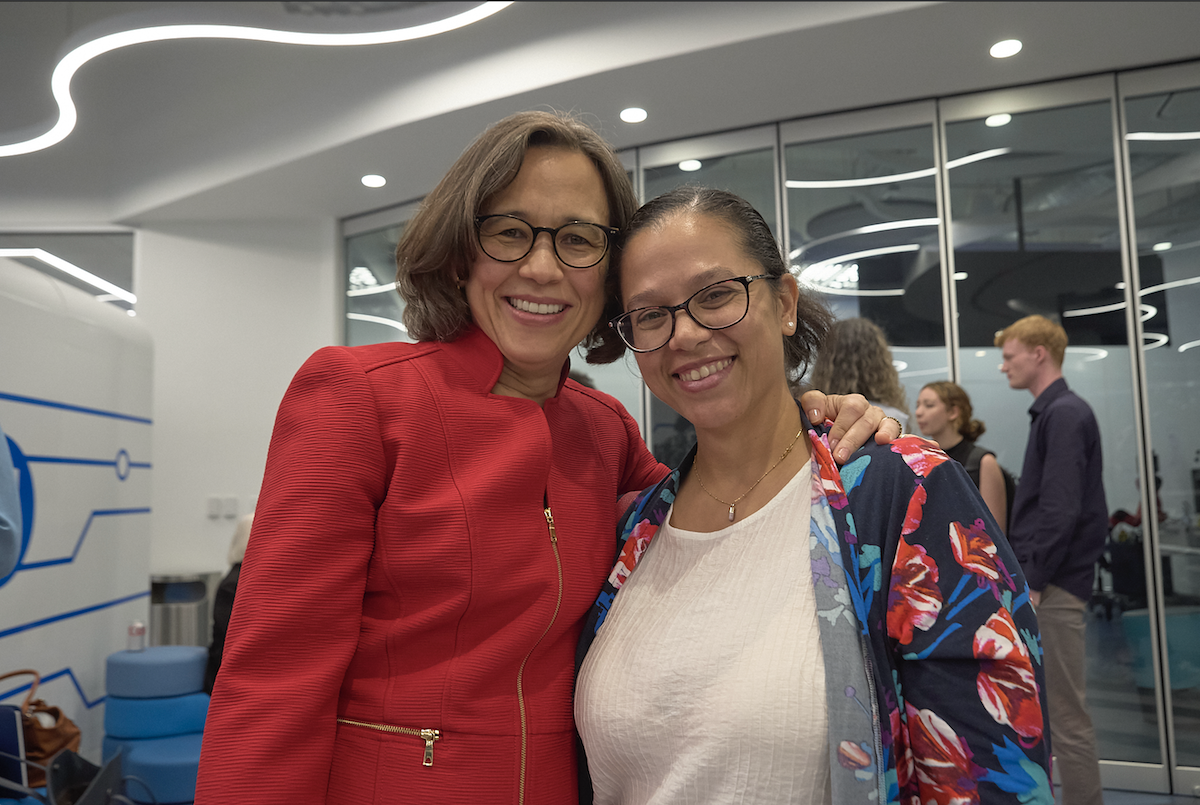
The keynote then explored the future of education, where AI and emotional learning intersect. Dr. Neimand presented a vision of classrooms where AI assists in real-time emotional assessment, helping teachers to better understand and respond to their students’ emotional states and learning needs.
Concluding her address, Dr. Neimand emphasized that AI is no longer a future prospect but an active present force. Quoting luminaries like Sal Khan and Aristotle, she highlighted the imperative of integrating emotional intelligence with cognitive education, positioning AI as a pivotal tool in this holistic educational paradigm. Her presentation elegantly bridged traditional educational methodologies with groundbreaking AI technologies, paving the way for deeper discussions on the conscientious integration of AI in emotional learning.
Panel Discussion: The Future of AI and Emotional Intelligence
The panel discussion, moderated by Erika Twame, brought together experts from various fields to explore the intersection of AI and emotional intelligence. The panelists included:
-
- Dr. Michael Menino, an adjunct professor at Miami-Dade College with expertise in computational cognitive neuroscience and AI ethics.
-
- Francisco Moises, the Worldwide Education Industry Service Director at Microsoft.
-
- Dr. Paula Hawkins, the Executive Vice President of Strategic Partnerships and Funding Development at the Miami-Dade Beacon Council.
Erika opened the panel by asking Dr. Menino about his research on “emotional synchrony” and its implications for the future of AI in human interactions. Dr. Menino emphasized that for effective human-AI collaboration, especially in educational contexts, AI must understand human emotions as dynamic processes rather than static ones. He highlighted studies showing AI’s ability to recognize emotions through speech patterns and body movements, stressing the importance of emotional intelligence for decision-making and social interactions.

The discussion then shifted to the challenges and benefits of integrating AI into various fields. Dr. Mannino noted that while many examples of AI are focused on specific tasks—what he termed “narrow AI”—the technology is evolving to potentially create itself. This raises questions about whether AI could develop its own values, adding complexity to its responsible integration.
Francisco Moises shared Microsoft’s commitment to responsible AI, particularly in education. He acknowledged the rapid pace of technological change and its dual potential for positive and negative outcomes. Moises detailed Microsoft’s five-year journey in developing responsible AI principles, emphasizing transparency, accountability, and the necessity of a “human in the loop” for high-stakes decisions. He highlighted how AI can personalize education and reduce administrative burdens for teachers.
Dr. Paula Hawkins discussed strategies for fostering AI adoption in schools and businesses to support emotional resilience. She identified three key elements: promoting self-awareness about AI’s role, cultivating a positive relationship with AI, and setting clear goals for AI integration to create emotional investment.
Returning to Dr. Mannino, the panel explored the “Energy Principle” and “Social Neuroscience.” He explained that the brain functions as a “prediction engine,” constantly making inferences to minimize uncertainty. Dr. Mannino emphasized the need for cognitive neuroscience to inform AI development, suggesting that AI could achieve higher emotional intelligence by drawing inspiration from human cognition.
The discussion then turned to practical applications of AI in education. Moises shared examples of how Microsoft is creating inclusive learning experiences through AI, such as tools that provide personalized feedback to students practicing reading aloud. He also introduced the “Microsoft Reflect” tool, which enhances emotional intelligence in educational settings by fostering natural interactions.
The panel delved into the ethical considerations of emotionally intelligent AI. They discussed the potential risks of AI systems that can manipulate human emotions and the importance of developing safeguards and ethical guidelines. Dr. Hawkins emphasized the need for diverse perspectives in AI development to ensure that these systems are culturally sensitive and inclusive.
The conversation then shifted to the future of work in an AI-driven world. The panelists explored how emotional intelligence will become increasingly important as AI takes over more routine tasks. They discussed the need for education systems to adapt, focusing more on developing uniquely human skills like creativity, empathy, and complex problem-solving.
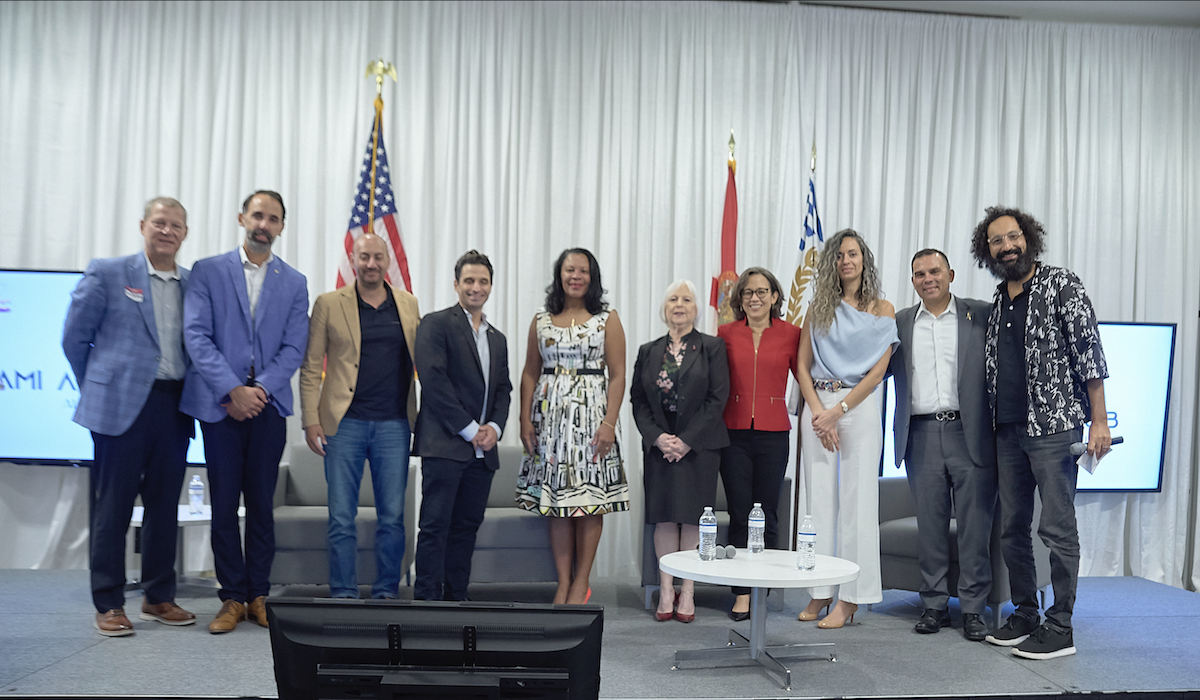
As the panel concluded, Erika asked each panelist to share a single word of advice for the audience regarding responsible AI integration. Dr. Hawkins emphasized “engagement,” urging active participation in AI discussions. Moises recommended “learn,” highlighting the importance of continuous education about AI advancements. Dr. Mannino suggested “meta-skills,” advocating for the development of skills like resilience and adaptability to thrive in an AI-driven future.
The panel discussion provided a comprehensive exploration of the challenges and opportunities presented by the integration of AI and emotional intelligence across various sectors. It highlighted the need for continued research, ethical considerations, and collaborative efforts to ensure that AI technologies enhance rather than diminish human emotional and cognitive capabilities.
Raymond Rodriguez Torres: Bella’s Story – How AI Can Transform Lives
Raymond Rodriguez Torres began his heartfelt talk by sharing a poignant moment he witnessed, where a group of physicians sang to a young patient in the hospital. While the gesture was well-meaning, he pointed out that the doctors neglected to explain the upcoming procedure to the child, highlighting the critical role of emotional understanding in healthcare.
AI and Emotional Learning
He quoted Anthony Robbins: “Information without emotion is rarely absorbed,” which set the stage for his personal narrative. In 2002, Raymond and his wife welcomed their daughter, Bella, but her delivery was complicated, leading to developmental delays due to a loss of oxygen to her brain. The family faced numerous challenges, including bullying and harsh judgments from others.
Raymond recounted Bella’s journey through multiple diagnoses, including Guillain-Barré syndrome and stage 4 alveolar rhabdomyosarcoma. Despite the grim prognosis, Bella fought valiantly against cancer for six years, regaining her ability to walk, run, and jump. Her developmental delays, initially seen as a burden, became a blessing, allowing her to approach her illness with joy and fearlessness.
On May 28, 2013, Bella passed away in Raymond’s arms at the age of ten. Following her passing, the Live Like Bella Foundation was established, which has since grown to operate in 37 countries, providing support to families affected by childhood cancer and funding over $37 million in research.
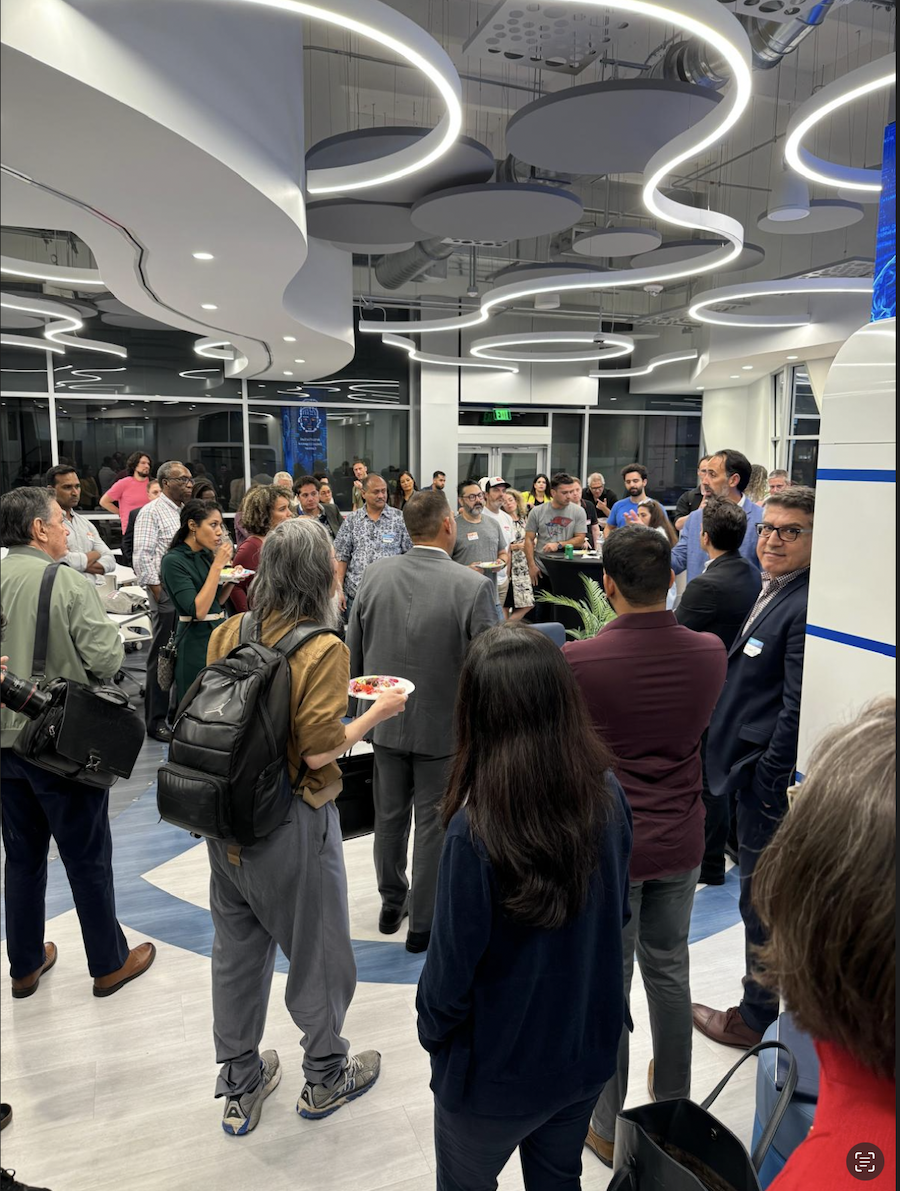
Raymond highlighted a collaboration between Nicholas Children’s Hospital and Florida International University (FIU), where AI is being utilized to enhance pediatric cancer treatment. This initiative has shown remarkable results, with 83% of children in a trial achieving disease-free survival.
He also introduced the ICANN initiative, which empowers children to create solutions for their challenges. This program uses AI and augmented reality to explain medical procedures in a calming manner, addressing the emotional needs of young patients.
In closing, Raymond expressed gratitude for the opportunity to share Bella’s story and reiterated the transformative potential of AI in improving the lives of children battling cancer. He invited the audience to watch a documentary about Bella’s life, recently released on Amazon Prime, encouraging them to enjoy it with their loved ones.
Conclusion
Nima wrapped up the event by expressing his gratitude and sharing his vision for the future of AI. He emphasized that his curiosity about the potential of AI led him to bring together a diverse group of experts through the Miami AI Club. The goal of this assembly is to explore how AI can be harnessed to create a positive impact on society.
He took a moment to thank several key individuals for their contributions:
-
- Sara Zargaran, Erika Twani, and Ankit Virmani for organizing the event.
-
- The speakers who shared their insights and experiences.
-
- Pedro and Miami Dade College (MDC) for their support.
-
- The sponsors who made the event possible.
Nima encouraged everyone to get involved with the Miami AI Club, an exclusive community of decision-makers, thought leaders, and AI builders committed to making a positive impact through AI. He outlined the club’s three guiding principles: to be conscious, determined, and united in their efforts.
He concluded with an invitation for attendees to reach out to him if they wished to participate or learn more about the Miami AI Club, reinforcing the importance of collaboration in shaping a brighter future through artificial intelligence.
